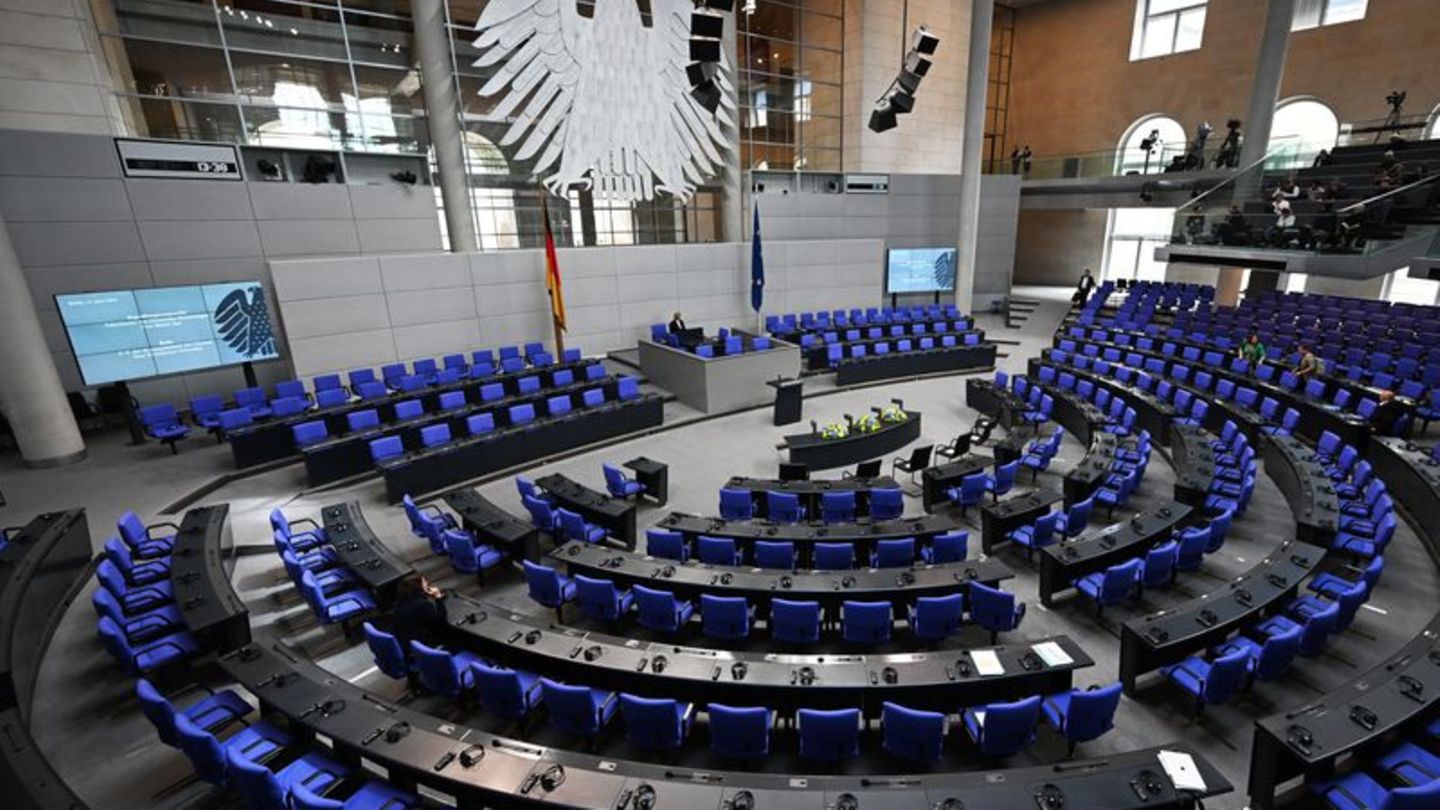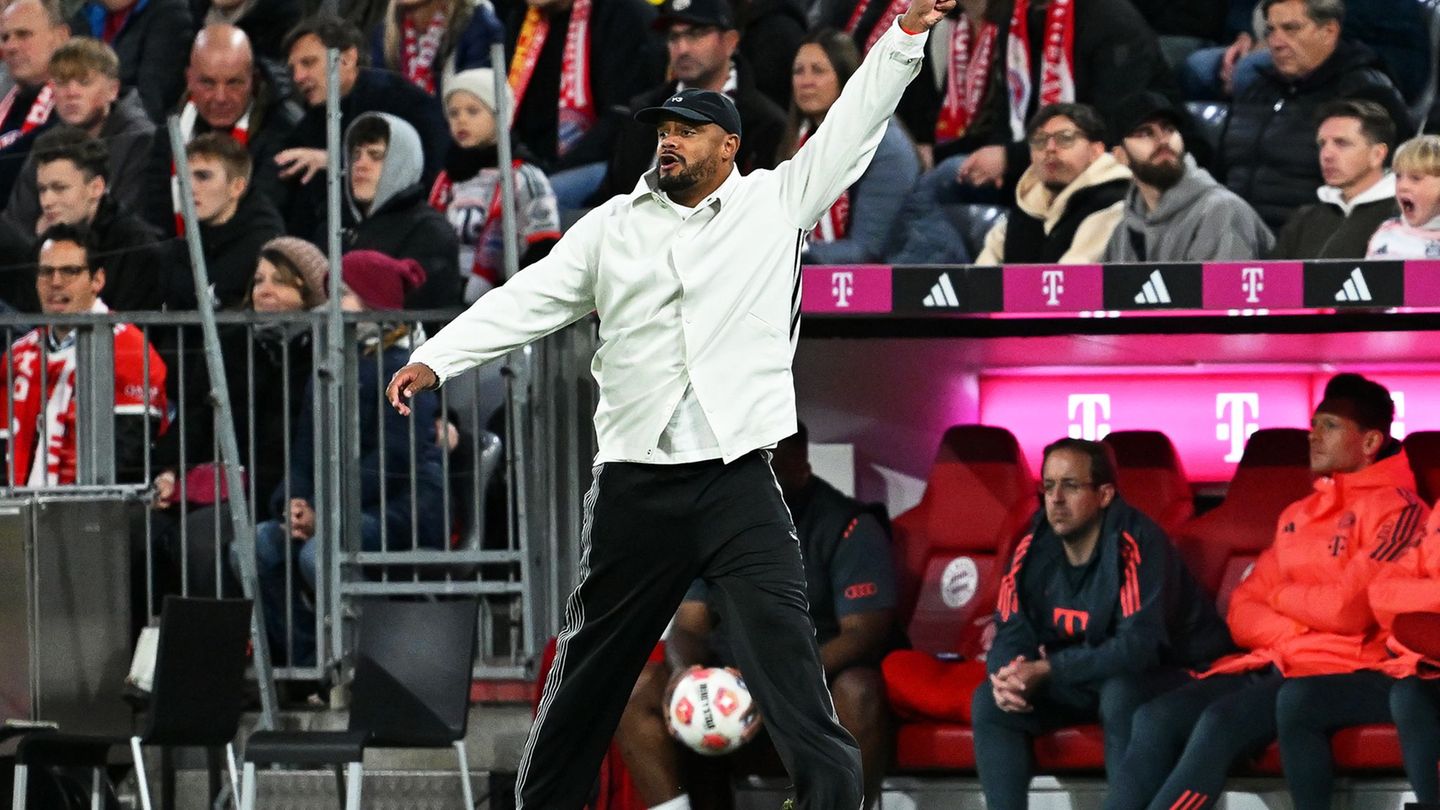The traffic light coalition has long struggled over a budget for 2025. Now the Bundestag is debating it.
At the start of the budget week in the Bundestag, the Union expressed considerable constitutional doubts about the draft budget of the traffic light coalition. “There is both a considerable financial and legal risk,” said CDU budget officer Christian Haase. “The budget balance is being tricked out in order to survive the legislative period and not to endanger one’s own favorite projects, no matter how many budget principles are violated in the process.”
Finance Minister Christian Lindner (FDP) will introduce the budget law for 2025, which was drawn up with great effort and controversy, to parliament on Tuesday. His draft provides for expenditure of more than 488 billion euros. Of this, around 51.3 billion euros are to be financed through new debt. The debt brake in the Basic Law allows this due to the poor economic situation.
Financing gap of 12 billion euros
More problematic is the so-called global underspending of around 12 billion euros, an amount that is not yet covered by revenue in the budget. According to a report commissioned by the Union by constitutional lawyer Hanno Kube, this gap is set at an above-average level.
The federal government is betting that the ministries will not spend twelve billion of the billions they are entitled to anyway, for example because projects are delayed or funding is not claimed. This happens again and again, but usually not on this scale. The sum is “significantly higher than past experience,” writes Kube in the report, which was first reported by the “Rheinische Post.” According to the Federal Ministry of Finance, it is the largest funding gap in a government bill in the past twenty years.
Lindner said on Sunday evening in the ARD “Report from Berlin” that the hole in the budget must be reduced. Realistically, one could plan for a global reduction in spending of two percent of the budget volume – that would be 9.6 billion euros. “That means: we still have a task until the end of November, the parliament has a task worth 2.4 billion euros,” said Lindner.
Union and AfD have further doubts
Kube and the Union have expressed further concerns, such as the planned accounting of equity injections and loans to the railway outside the debt brake. The assumptions about the development of the labor market and thus the expenditure on citizens’ allowances are also questionable, writes the constitutional lawyer in his report.
The planned global additional revenue of around 6.9 billion euros also raises constitutional doubts. Here, the federal government assumes that the planned growth initiative will lead to more tax revenue – but the actual effect of the measures is still unclear. Union parliamentary group leader Friedrich Merz (CDU) accused the traffic light coalition of having an unprofessional budget policy.
The AfD also accused the federal government of budgetary tricks. Budget officer Peter Boehringer criticized that expenditure was “consistently, systematically underestimated” and revenue “consistently overestimated.” On the revenue side, the government is working with growth expectations that are completely unsubstantiated. Tax revenue plans are set much too high. Boehringer pointed to problems in the steel and automobile industries. “Here, an absolute shrinkage and emergency braking is underway and yet this government is still counting on growth.”
Draft budget is still being changed in parliament
During the week, MPs debate the individual budgets of all ministries – from the Ministry of Labor on Tuesday to the Ministry of Family Affairs on Friday morning. Then it is the turn of the Bundestag’s budget officers, who usually make a few changes. The big showdown is usually the so-called reconciliation session in November, in which these changes are voted on. The budget can then be officially approved by the Bundestag at the end of November.
Green budget politician Sven-Christian Kindler has already announced noticeable changes to the federal government’s proposal. “The Bundestag will of course make relevant improvements to the cabinet draft for the next budget,” he told the Redaktionsnetzwerk Deutschland (RND). “Parliament is the budget legislator.”
He expects constructive cooperation with the traffic light coalition partners FDP and SPD. “We are in complete agreement with the budget politicians of the SPD and FDP that we will work in a concentrated and rapid manner and come to good solutions,” said Kindler.
With regard to the financing gap, Kindler called on the Union in particular to negotiate a reform of the debt brake in the Basic Law. “In view of the many turning points that are currently taking place, investments in climate protection, infrastructure and internal and external security are now necessary,” the budget expert told the RND. CDU leader Merz should not refuse to hold talks on a reform of the debt brake. The debt brake only provides for a very limited net borrowing.
Source: Stern
I have been working in the news industry for over 6 years, first as a reporter and now as an editor. I have covered politics extensively, and my work has appeared in major newspapers and online news outlets around the world. In addition to my writing, I also contribute regularly to 24 Hours World.




